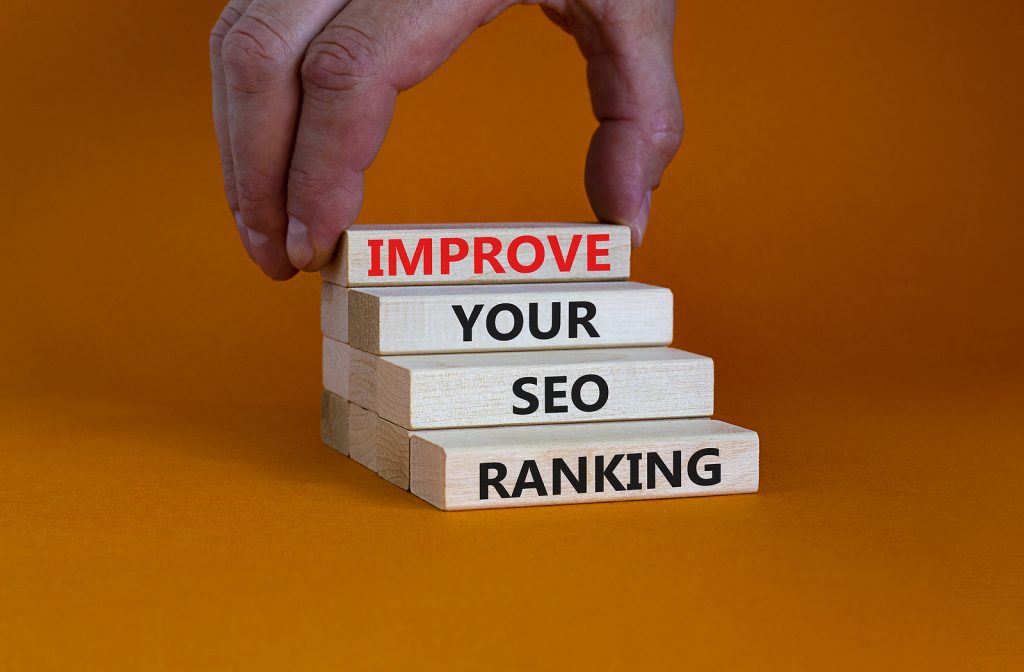
Search engine optimization (SEO) is a great addition to any online marketing effort. Proper implementation can lead to amazing results, with a higher search engine ranking leading to an increase in traffic (website visitors) and sales.
Of course, the opportune place to be when someone is looking for the types of products, services, or information you offer is at the top of their search results. This is what SEO is all about.
Let’s look at the factors that affect on-page and off-page SEO and how these can impact your search engine rankings.
On-Page SEO
- Add a title tag. You will need this on every page of your website, as this will show the search engines and your visitors what the page is about. It should be 70 words or less and include the keyword or keyphrase you want to rank for.
- Write a meta description. This is not always needed and is often ignored by the search engines. However, you can use it to explain in more detail what the webpage is about. Include the keyword or phrase within this description too.
- Create sub-headings. These make your content easier to read plus it helps improve your search engine rankings. You can use them to add additional keywords and key phrases into your content. This shows the search engines that you believe them to be important to your content.
- Build internal links. This technique can be powerful and may be strong enough to rank individual pages without any external (off-page) SEO. Just put a link in your smaller articles to a longer, more authoritative piece of content. This helps the longer content to rank higher.
- Use image name and ALT tags. Give each image on your website a name that includes your chosen keyword. When indexing the page, the search engines may rank these images when people search for that particular keyword.
- Avoid over-optimizing. When creating the content for your website, it’s important not to over-optimize the content. This means that it will benefit you to sparingly use the main keyword while including related keywords and phrases. You may be able to rank highly for these other keywords as well.
- Make your website mobile-friendly. These days, most searches and social media traffic will come from mobile devices. So, it’s important that your website works properly on mobile. If your website isn’t mobile-friendly, this will impact your user experience, and therefore your ranking signals, negatively.
Off-Page SEO
- You must build trust. Trust has become an important ranking factor. It shows the search engines that what you say is accurate and that visitors can trust your content. To develop trust, build high-quality backlinks from other trusted sources and ensure that your content is high quality and accurate.
- Build backlinks. Most SEO experts gain backlinks by building relationships with other websites. It’s crucial to avoid spamming your links or building them too quickly. This could result in your website becoming de-indexed, which is essentially being banned from the search engines.
- Get social signals. According to some SEO experts, getting likes and shares from social media may have an impact on your search engine rankings. So, it makes sense to create the most valuable content you can and share it with your own social media accounts, where others can like and share it too.
Now that you know what on-page and off-page factors affect your SEO efforts, you can make any necessary changes to your website, leading to a boost in rankings and sales.
Just remember that SEO takes time to work. It won’t happen overnight and may take many months for you to see the fruits of your labor. However, this effort will be worth it once you’re continuously getting targeted traffic from the search engines, with the sales that come with it!
Which of these do you do with your pages or posts on your website? Leave a comment below!
I keep working on SEO a little by little, there is always more to learn as things change. I need to work more on building backlinks definitely …. glad to be back in the UBC..
That is the best way to do it – little by little! Nice job!
I definitely have a lot to learn. I really appreciate this list of things to do to improve my blog. Starting today I will add a title tag and caption to all the photos and images I create.
Stick around, Cheryl, and come on back for more information that can help you.
Really useful info, Paul. I’m going to study what you’ve talked about and try and implement it step-by-step. Thank you!
You can go easy, Victoria – while doing ALL is best, you can start off light and just select, “The easy ones” that you can handle. Then over time, build them up until you get to all fo them.
Great tips, a few I’m already doing and a few more to put in place!
Awesome, Kimberely! Which ones?
Thank you for the tips which I will be sharing with my VA as we have been working on SEO on my website.
Awesome Sauce!
Okay, your post convinced me that I need to hire another person so that my current assistant can take care of optimization of my poor blog that has been on “life support” for a least a year now. We haven’t even bothered with on-page SEO in a long time but it’s time to fix that.
You can always work on the On-Page SEO on a go-forward basis and sneak in an existing post or two as you move along.
This is a great article. Very informative as always. I copied it to use as a checklist for future pages and blog posts. Thank you so much!
Thank you for reading our article, Pam! We’re glad you found it helpful and that you’ll be using it as a checklist for your future work. Thanks for the support!